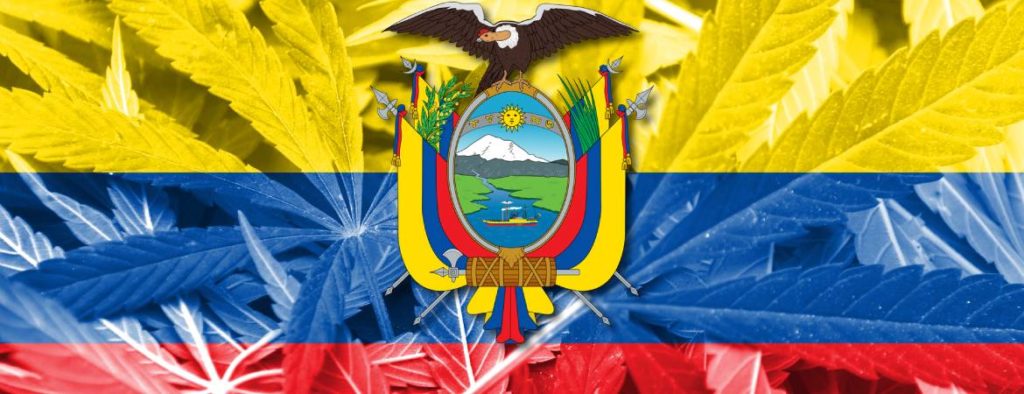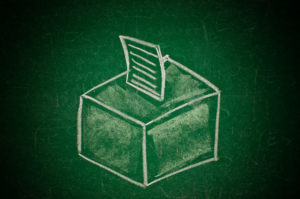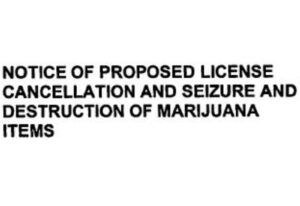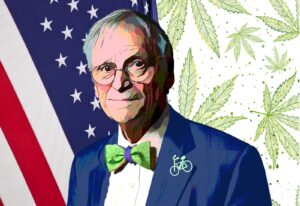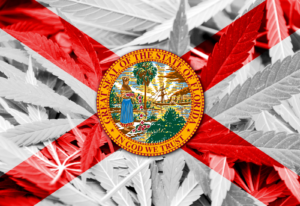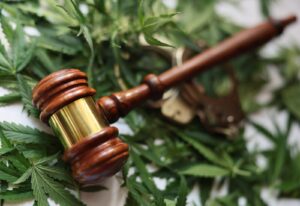Five* Latin American nations are set to hold presidential elections in 2021, with some important legislative elections taking place as well. Some of these contests will have implications for cannabis policy, and we will be looking at what is at stake in each vote, starting with Ecuador, which heads to the polls next Sunday, February 7, to elect a new president and legislature.
Last October, Ecuador’s agriculture department issued hemp regulations, establishing a legal framework for cannabis with THC content of less than 1.0%. Possession or use of cannabis is decriminalized, but only for amounts that do not exceed ten grams. Might a new occupant of Carondelet Palace push for further legalization, opening the door to legal recreational cannabis?
The current frontrunner is Andrés Arauz, an economist and University of Michigan alum. Arauz’ running mate, Carlos Rabascall, has said their administration would not modify the schedule that established the 10 g maximum amount. However, it is important to remember the schedule includes drugs such as ecstasy and heroin, from which the government could differentiate cannabis if necessary.
Arauz has indicated former president Rafael Correa (also a Big Ten grad, having earned a PhD at the University of Illinois) will be one of this principal advisors. It was under Correa’s watch that Ecuador decriminalized cannabis and other controlled substances (subject to the schedule described above). However, he was lukewarm on the issue of legalization, declaring in 2014 that his government had “a thousand priorities” that were more pressing. At the same time, he warned “the current strategy against drugs and drug trafficking has been a complete failure, so we must not exclude any possibility, including legalizing some drugs.”
In addition to his rejection of the law-and-order approach, the worldly Correa (who currently lives in his wife’s native Belgium) must surely be aware of the sea change that has taken place when it comes to cannabis in the years since he left office. As for Arauz, it is hard to imagine a 36-year-old who studied in Ann Arbor (home of the Hash Bash) and Mexico City (arguably the most liberal city in Latin America) would have deep-seated hostility to cannabis. It seems clear that cannabis legalization would not be a priority for an Arauz presidency, but if a debate does open up, his response and that of his trusted advisor might be favorable.
For his part, Arauz’ main rival, Guillermo Lasso, tweeted last year that “Cultivation and distribution must be allowed for MEDICINAL USES.” While his unequivocal support for medical cannabis is encouraging, his all-caps emphasis also suggests he does not support extending legalization initiatives to recreational cannabis.
Under Ecuador’s electoral system, a second round of voting will be required if no candidate wins an outright majority in the first round (or 40% of the vote with a lead of more than 10 points over the closest rival). Most polls suggest Arauz will need to face Lasso in a runoff, but Yaku Pérez, a member of the indigenous Cañari group, remains competitive for the second spot. Pérez has placed environmental concerns at the heart of the platform, opposing extractive activities, which suggests he might be amenable to further development of an ecofriendly cannabis industry. As far as we can tell, though, Pérez has made no public statements regarding cannabis.
In all, the future of Ecuador’s hemp industry appears safe, regardless of the electoral results. Moreover, with some luck, the country might see further legalization. We will be keeping an eye on what happens on February 7 and beyond.
* Technically speaking, Nicaragua will be having an election in November, but as things stand, the ruling party will be free to disqualify opposition candidates.










